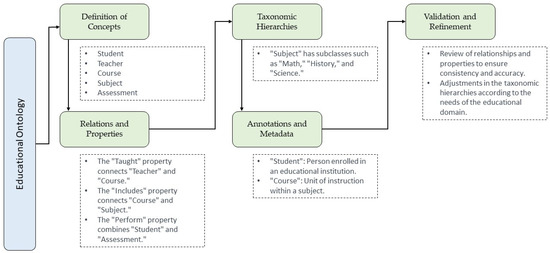The Main Principles Of Bioinformatics Tutor
The Main Principles Of Bioinformatics Tutor
Blog Article
6 Simple Techniques For Bioinformatics Tutor
Table of ContentsThe Definitive Guide to Bioinformatics TutorUnknown Facts About Bioinformatics TutorBioinformatics Tutor - TruthsGet This Report about Bioinformatics TutorThe 8-Minute Rule for Bioinformatics Tutor
Of the overall individuals included in the training, 80% were trainees from public higher education and learning organizations, while the staying 20% originated from personal establishments. To receive a certification of involvement, pupils were needed to attend a minimum of 90% of the total training hours. As a result of this need, a remarkable 95% of the participants successfully obtained their certifications, having not only fulfilled the minimum presence requirements however additionally completed all appointed tasks throughout the training.
During the height of the COVID-19 pandemic, especially in between June and August 2020, the job team was entrusted with organizing specialized training in bioinformatics. This training was especially focused on students from the research study group Nucleus for Study in Applied Computer at the Federal University of Pará (UFRA) The adaptation to remote knowing platforms as a result of the pandemic developed an opportunity to check out new mentor approaches and electronic tools that enhanced both reach and efficiency.
This course was created to give an accessible yet detailed introduction of Artificial Knowledge strategies, especially as applied in bioinformatics (Bioinformatics Tutor). This online style allowed engagement from pupils throughout Brazil, several of whom may not have had the chance to participate in in-person sessions.
Getting My Bioinformatics Tutor To Work
About 50% of the overall training hours were devoted to useful tasks where trainees constructed intelligent versions and applications in a variety of scientific domain names, including genetics, molecular biology, and ecological information evaluation. These platforms made it possible for pupils to engage in real-time data control, model training, and algorithm trial and error.
Sixty of them were associated with different greater education institutions in the state of Pará, while the continuing to be twenty came from organizations found in five various other Brazilian states. By presenting Artificial Knowledge in a sensible and relevant context, the campaign offered to link the gap between theory and real-world application, offering pupils with a strong structure for future study or employment in the area.
The training effort created component of a more comprehensive scholastic outreach effort referred to as the Bioinformatics on the Road job. This job has, throughout the years, presented lots of students to the globe of bioinformatics and computational biology. The occasions held under this umbrella initiative have occurred across several regions and years, as summed up in Table 1 (Listing of events, areas, years, and complete numbers of pupils and trainers)
Numerous of these groups, initially brought together by their involvement in training occasions, have actually considering that gone on to generate independent scientific study in partnership with local scholastic institutions. The training not only cultivated scientific reasoning within the context of bioinformatics but also sparked collective partnerships that extended past the training setting.
Things about Bioinformatics Tutor
The very same group, excluding IH and RR, likewise acted as tutors for the sensible training components. Funding for Get More Information the task was offered with the grant 88887.200562/ 2018-00 from CAPES.
The Federal College of Pará's Workplace of Study (PROPESP/UFPA) also provided monetary assistance, specifically for the production of the final manuscript. The authors state no economic or industrial conflicts of interest that might have check these guys out influenced the research study. Furthermore, all viewpoints and interpretations expressed in this write-up are entirely those of the writers and do not always show those of their corresponding establishments, the publisher, editors, or customers entailed in the publication process.

The Ultimate Guide To Bioinformatics Tutor
From an instructional perspective, the teaching method used in the training was purposefully interactive. Courses were carried out in a fashion that encouraged student participation and conversation, surpassing memorizing memorization to check out how ideas are created, used in everyday life, and evaluated in academic setups. The educational ideology concentrated on supporting both strong and struggling pupils, offering individualized support, and structure confidence through continual mentorship and perseverance.
Each team, being composed of about 36 individuals, was supported by three coaches-- most of whom were postdoctoral researchers with specialized expertise. These mentors about his not just assisted develop the group jobs but also promoted their implementation, guaranteeing that each research study inquiry was both relevant and suitably tough. The goal was to provide a biologically realistic context that participants could discover via open-ended objectives and access to curated datasets.
For added insights into the method and results of this project-based understanding strategy, visitors are routed to S1 Text, that includes comprehensive summaries of the instructional structure, analysis approaches, and task themes utilized in the training sessions.
Some Of Bioinformatics Tutor
Of the overall individuals included in the training, 80% were pupils from public greater education establishments, while the continuing to be 20% came from personal organizations. To qualify for a certification of participation, students were needed to go to at least 90% of the total training hours. Notably, past the trainees that enrolled in the training sessions, seven skilled trainers participated in delivering the programs, while three devoted research teachers collaborated the overall training procedure. Approximately 50% of the total training hours were committed to practical activities where pupils developed intelligent designs and applications in an array of scientific domains, consisting of genetics, molecular biology, and ecological data analysis. The training not only promoted clinical thinking within the context of bioinformatics yet also triggered joint connections that extended beyond the training environment.
Report this page